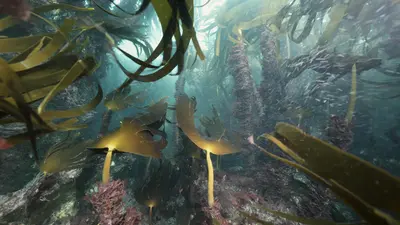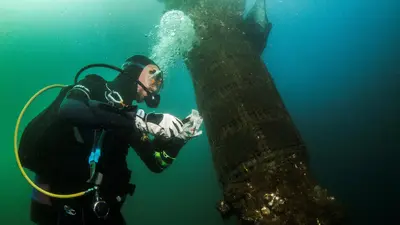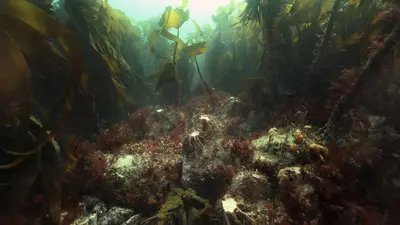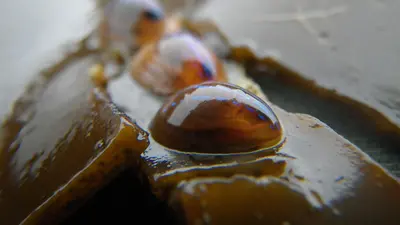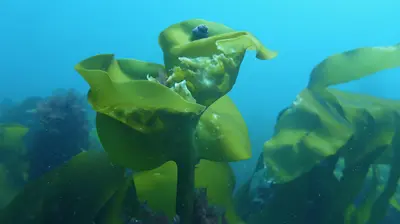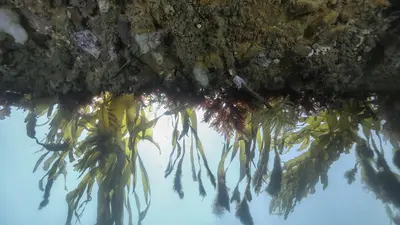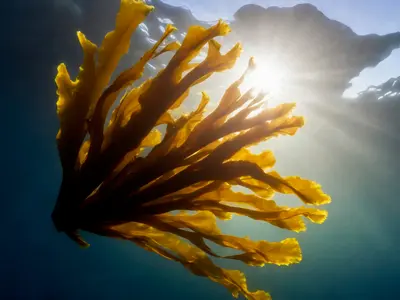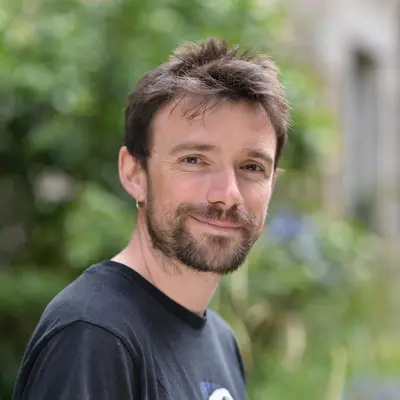
Jean-Charles LECLERC
In a nutshell
I am a marine ecologist, interested in the natural and human-driven processes that govern the diversity, structure, and functioning of marine communities, particularly those associated with hard substrates. I have both practical and theoretical expertise in various areas, with a particular focus on species identification (flora and fauna), sampling strategies and often complex in situ experiments, as well as data analyses.
My research takes place in the context of marine biodiversity loss, which has complex and poorly understood effects on the stability of ecosystems facing environmental change. My current work focuses especially on compensatory dynamics that allow ecosystems to absorb new pressures, early warning signs of degradation, and processes that may limit ecosystem recovery. These elements are essential for improving management strategies and adapting to climate change.
To this end, I focus on two ecosystems with contrasting natural histories and conservation challenges:
- kelp forests, dominated by foundation species that are sensitive to climate change and human activities (e.g., harvesting), and
- marine urban environments (e.g. ports), where man-made structures are colonized by so-called “novel assemblages” of species, which differ strikingly from those typically found in natural habitats.
Last projects
2025-2028 STABILO : Stability of kelp associated community along a biogeographic transition zone.
Main PI (OFB R&D). Collaborators at the SBR: E Thiébault, C Daguin-Thiébaut, T Comtet, C Broudin, Y Fontana (SU). Autres: I Gailhard Rocher, T de Bettignies, Y Turpin, R Hubert (OFB), Q Ternon, P Provost, A Deniau (LPO), M Laurans (Ifremer), E Quéméré (INRAE), F Viard (CNRS).
2022-2024 KELP ME ! Kelping the future marina ecosystems? A pilot study exploring the biodiversity and ecosystem functioning relationships associated with suspended forests.
Main PI (H2020, MSCA-Bienvenüe, SU) Collaborators at the SBR: E Thiébaut, S Dittami, F Thomas, G Tanguy, A Nicolle, M Moal, R Crec’hriou, C Broudin, C Houbin, L Caradec, L Blondel, E Legeay, D Potin, S Loisel, L Sevin, J Coudret, A Migné, D Davoult, G Schires, P Potin
2022-2024 LAMINET, Environmental DNA applied to investigate variations in food webs in Breton kelp forests.
Associate PI (SAD, E Quéméré, DECOD- INRAE), Collaboration PNMI, Seven Islands Natural Reserve
Selected publications
Figueroa N N, Leclerc J-C, Pinochet J, Oyarzo-Vera C, & Brante A (2025). Incorporating industrial by-products within concrete has limited effects on the assembly of marine sessile communities. Journal of Environmental Management, 395, 127720.
Leclerc J-C, Gonzalez M, Pezy J-P, Raoux A, Houbin C, Broudin C, Loisel S, Crec’hriou R, Sevin L, Migné A, Coudret J, Houbin C, Davoult D, Massé C, Filbee-Dexter K, Wernberg T, Thiébaut E. Multi-scale patterns in the structure of fouling communities associated with seaweeds in marinas. Marine Ecology Progress Series, 742 :1-19
Leclerc J-C, Figueroa NN, Viard F, Brante A (2023). Distribution of functionally distinct native and non-indigenous species within marine urban habitats. Diversity and Distributions, 29:1445-1457
Massé C, Viard F, Humbert S, Antajan E, Auby I, Bachelet G,…, Leclerc J-C,… Curd A (2023) An overview of marine non-indigenous species found in three contrasting biogeographic metropolitan French regions: insights on distribution, origins and pathways of introduction. Diversity, 15:161
Leclerc J-C, de Bettignies T, de Bettignies F, Christie H, Franco JN, Leroux C, Filbee-Dexter K, Pedersen MF, Davoult D, Wernberg T. (2021) Local flexibility in feeding behaviour and contrasting microhabitat use of an omnivore across latitudes. Oecologia, 196:441–453
Leclerc J-C, Viard F, González E, Díaz C, Neira J, Pérez K, Silva F, Brante A. (2020) Habitat type drives the distribution of non-indigenous species in fouling communities regardless of associated maritime traffic. Diversity and Distributions, 26:62-75
Cardenas L, Leclerc J-C, Bruning P, Garrido I, Détrée C, Figueroa I, Astorga M, Navarro J, Johnson LE; Carlton JT, Pardo L. (2020) First mussel settlement observed in Antarctica reveals the potential for future invasions. Scientific Reports, 10:5552
Leclerc J-C, Viard F. (2018) Habitat formation prevails over predation in influencing fouling communities. Ecology & Evolution, 8:477-492
Leclerc J-C, Davoult D, Lévêque L, Riera P. (2016) Contrasting temporal variation in habitat complexity and species abundance distributions in four kelp forest strata, Hydrobiologia, 777:33-54
Reports
Lévêque L, Leclerc J-C, Taormina B, Broudin C, Houbin C, Camusat M, … Thiébaut E (2017) Inventaire et caractérisation des communautés benthiques du plateau de la Méloine (Finistère nord), Rapport de la Station Biologique de Roscoff, CNRS - UPMC, Convention AAMP/14/069 (avenant 1)
Book chapters
Leclerc J-C, Gauff R (2025) Chapitre 3. Diversité, structure et fonctionnement des écosystèmes portuaires. Dans « Les ports: un nouvel enjeu en écologie marine », 11/2025 éds. Bouchoucha M, Rey-Valette H, Viard V. Quae
Teaching
My teaching focuses mainly on ecology, conservation, taxonomy, as well as statistical analyses. I have also taken responsibility for the environmental transition course units taught at the SBR. I am particularly involved in the curricula :
- Master Sciences de la Mer, SU
- Master Biodiversité Ecologie & Evolution, SU
- Licence Bio-MAD, SU
- Licence Bio-Industries et Biotechnologies Marines, SU/ISFFEL
- Licence Professionnelle Industrie agro-alimentaire, SU/ISFFEL
Key words
- Community ecology
- Kelp forests
- Biodiversity
- BEF relations
- Invasion ecology
- Food webs
- Marine infrastructures
